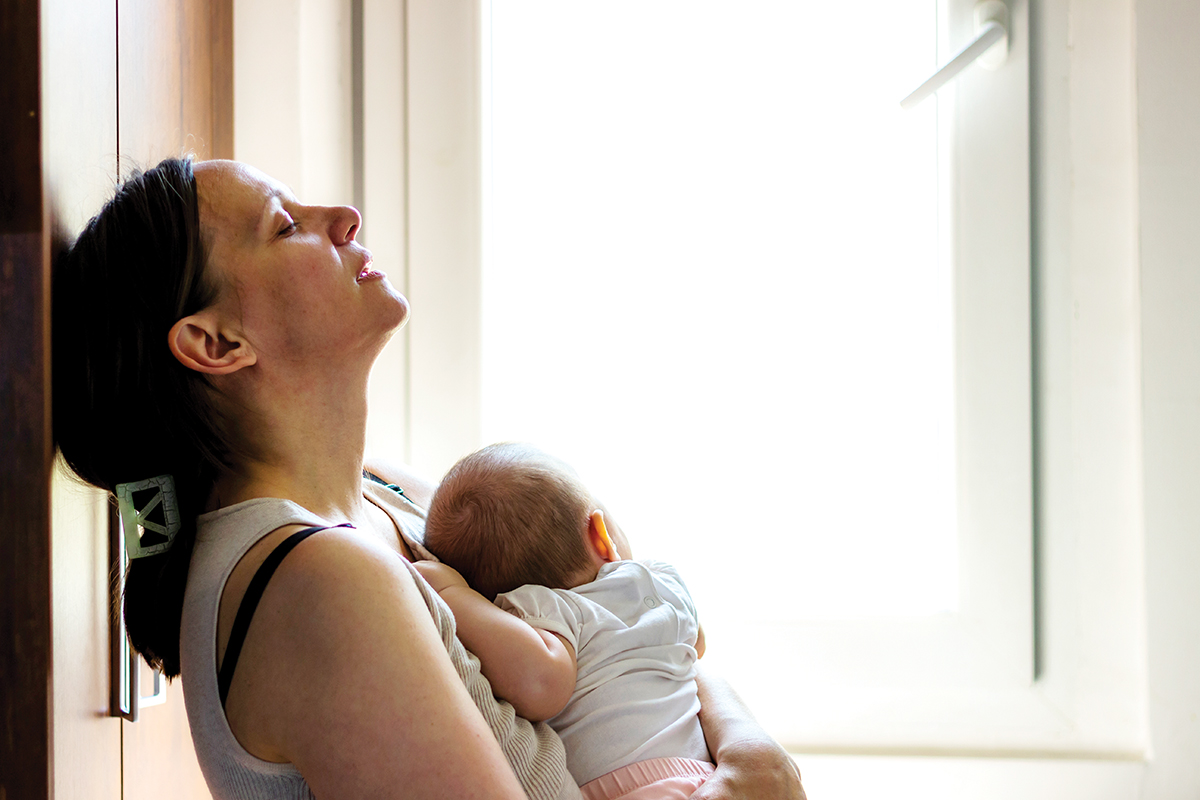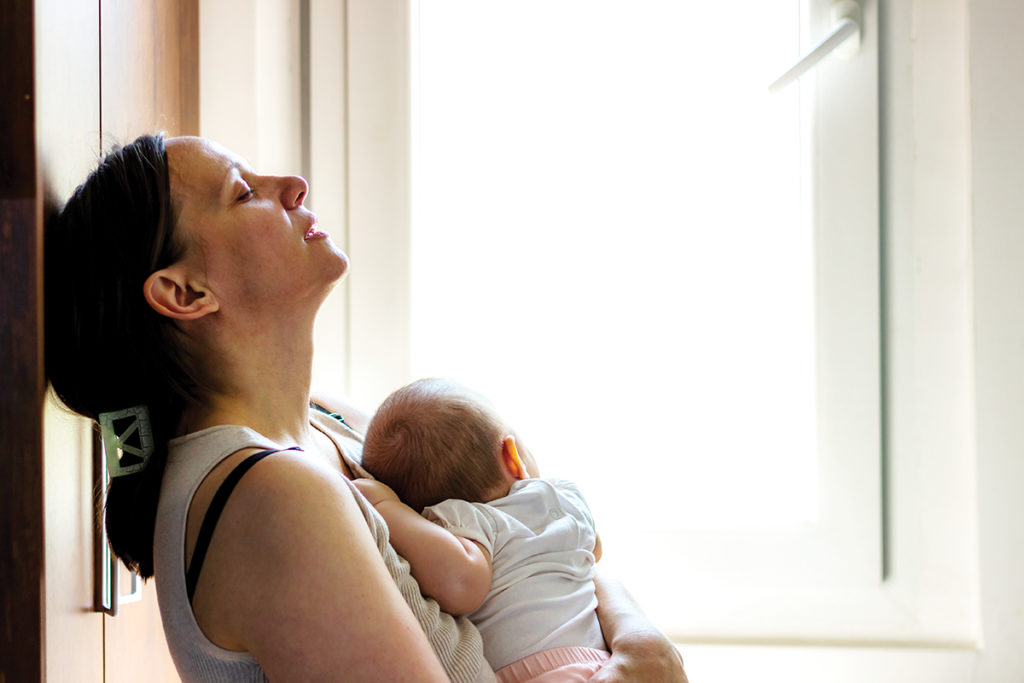
Being a new mom is challenging enough—balancing feeding, cleaning and caring for your baby on little to no sleep. Now add in hormonal ups and downs, emotional overload, birth plan disappointments, identity issues, irritability and anxiety over everything from whether the baby is breathing properly to how you’ll be able to afford to send her to college. Combine all that with feelings of isolation, already common in our increasingly digital world and made worse by COVID. When you add it all up, it’s not surprising that up to 85 percent of women experience one to three weeks of the baby blues.
And it isn’t just the blues—the mildest form of what’s collectively known as perinatal mood disorders (PMD). “Ten to twenty percent of women develop a mood disorder at some point from the time they become pregnant to up to a year after giving birth,” says Jill Wodnick, project coordinator for Pre/Perinatal Programming and Community Outreach, Center for Autism and Early Childhood Mental Health at Montclair State University.
What differentiates the blues from something more serious? “It’s a matter of duration and severity,” says Montclair-based clinical psychologist Alexis E. Menken, Ph.D., co-founder of the NJ chapter of Postpartum Support International. Postpartum depression, the most common complication of pregnancy and the best known PMD, affects about 10 percent of new mothers, commonly taking hold within two to three months after giving birth. Symptoms can include: sorrow and frequent sobbing, feeling little worth and unsafe as a parent, diminished interest in the baby, sleep, appetite and concentration issues and guilt for feeling this way. At the extreme end, psychosis can develop. Either way, depression is only one way PMD can manifest.
“You don’t have to be weepy, sad and blue to have a perinatal mood disorder. There are many facets, and depression doesn’t even have to factor in. Anxiety may present instead of the classic face,” she says. In this case, women may feel agitated, irritated and fearful, potentially experiencing panic attacks, cold sweats and hyperventilation, and not even realize it’s PMD.
What causes PMD? “Any number of things can contribute to a mood disorder,” says Menken. “A history of depression, having a mother who suffered PMD, a difficult pregnancy or birth, the sudden loss of freedom, exhaustion, body issues, even lack of basic resources like diapers can contribute.” Hormones, in particular, can have a dramatic impact. “The placenta is full of feel-good hormones (progesterone) and the sudden loss of the progesterone can feel really awful for many women,” says Allison Fox, MD, owner of Renew Integrative & Functional Medicine in Maplewood. “I also think that the expectations for what the postpartum period is going to be are not necessarily aligned with reality.”
From being seen as inadequate and unsafe to the shame of not living up to their own and society’s expectations, many women keep their real struggles hidden from everyone. “By staying quiet, you risk none of that—but you actually risk everything,” Fox says. “Obstetricians and midwives want nothing more than to help their patients postpartum. To me, there should be no shame, but as a culture we still have the idea that we are independent and should do it ourselves.”
Here are some things that can help:
- See a doctor: Whether pre- or postpartum, an OB-GYN or mental health practitioner can figure out what’s needed.
- Hire an expert: Night nurses let parents catch up on sleep. Lactation consultants ease nursing issues.
- Postpartum doulas offer emotional, physical and informational support. “Doulas are amazing allies who feel safe, but they are also highly trained,” says Fox.
- Farm out housework: If you can swing it financially, sign up for a meal delivery service. Send out the laundry. Let someone else clean your house. Or ask family and friends for help.
- Get some sleep: To catch more zzzzs, ask your partner to take a midnight or morning turn with a bottle.
- Breastfeed your babe: According to Wodnick, the feel good, milk-making hormone prolactin has a protective factor—so long as new parents have the support and encouragement they need to do so since nursing struggles can also contribute to postpartum depression.
- Seek out new parent networks: Social support is key to mental health. “Women need other women at this time,” says Menken. “It’s really essential, and there’s nothing like being in it with someone who’s also in it at the same time.”
Need help? Reach out.
PSI (postpartum.net): 1-800-944-4773
NJ Family Health Hotline: 1-800-328-3838
NJ Hopeline (suicide prevention): 1-855-654-6735
